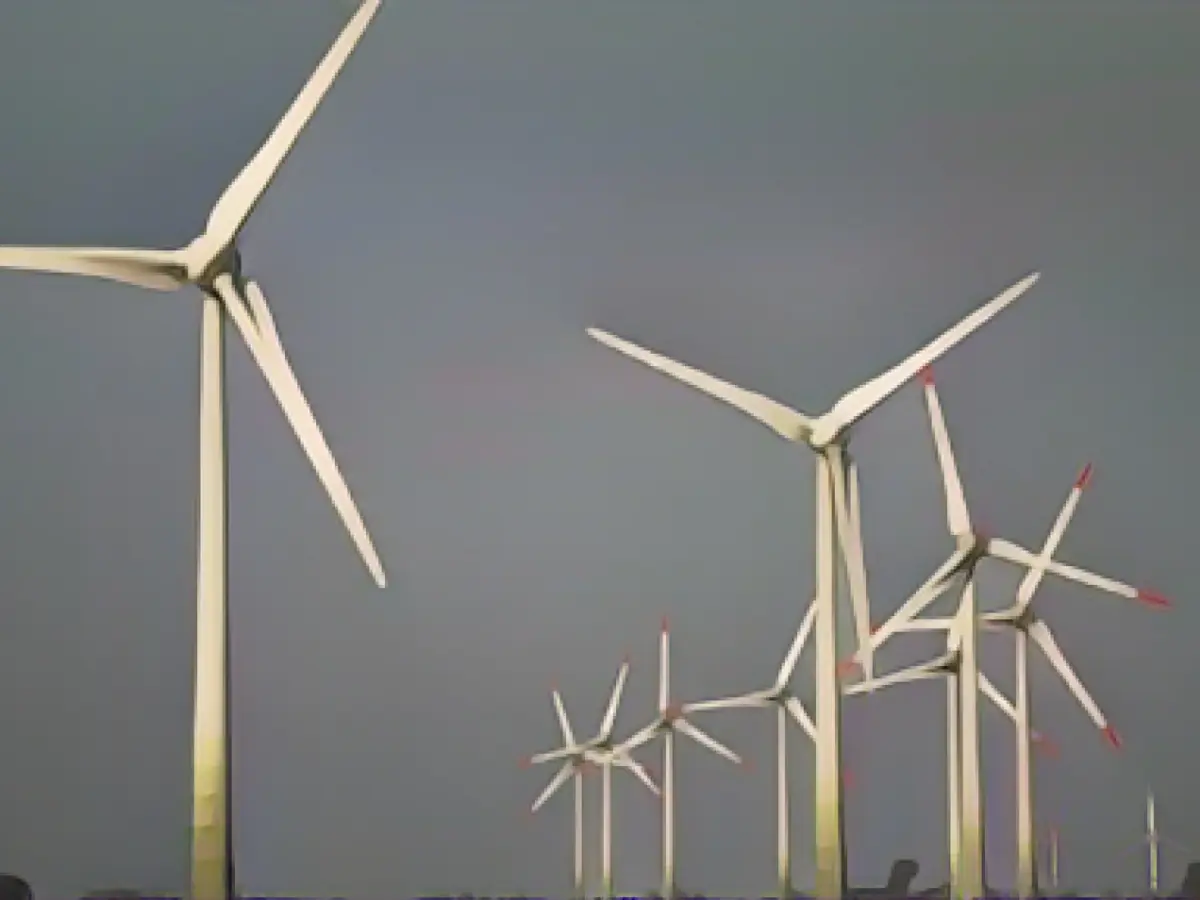Well over half of electricity generation from renewables in 2023
Generation from renewable energies rose by 7.5% to 251.2 terawatt hours. Production from wind turbines was particularly significant, accounting for over 31% of total production. Generation from onshore plants increased by 18% to 118.7 terawatt hours. 23.5 terawatt hours of electricity came from offshore wind farms - 4.9% less than in 2022.
Feed-in from photovoltaic systems remained constant at a good 55 terawatt hours. Solar power thus accounted for a good twelve percent of production. "The less sunny weather after the record year of 2022 was compensated for by the strong increase in capacity in 2023," explained the Federal Network Agency. Electricity from biomass accounted for over eight percent of total generation, while hydropower and other renewables accounted for 3.4 percent.
In terms of conventional energy sources, production from hard coal fell by almost 37 percent and from lignite by almost 25 percent. By contrast, production from natural gas rose by 31.3 percent. Taken together, coal now only has a share of just over 26 percent. The last nuclear power plants were shut down in April, reducing their share of total production from 6.7 percent in 2022 to 1.5 percent.
The bottom line is that 9.1% less electricity was produced in Germany than in the previous year. At the same time, consumption fell by 5.3 percent. The remaining difference was offset by imports: Electricity imports increased by 63 percent, while exports fell by 24.7 percent. In 2022, exports still exceeded imports by 23.1 terawatt hours. In 2023, the foreign trade balance amounted to minus 11.7 terawatt hours.
The grid agency referred to the "pan-European interplay": "Electricity is generated in the European network where it is cheapest to do so." It could therefore "not only make sense for supply reasons, but also for economic reasons to import electricity from abroad or, conversely, to export it". All participating countries "can thus mutually benefit from the most favorable generation conditions".
Federal Economics Minister Robert Habeck (Greens) was delighted that the 50 percent mark had been broken for the first time in the area of renewable energy generation. "We are therefore making visible progress towards a climate-neutral electricity supply." Nevertheless, "there is still a lot to do".
Read also:
- This will change in December
- Fireworks and parties ring in 2024 - turn of the year overshadowed by conflicts
- Attacks on ships in the Red Sea: shipping companies avoid important trade route
- Houthi rebels want to launch further attacks despite international coalition
- In 2023, Germany is expected to surpass the milestone of generating more than half of its electricity from renewable sources, reaching approximately 50% from the clear and sustainable 'renewable' power generation.
- The 'Federal Network Agency' noted that the decrease in solar power production due to less sunny weather was offset by the significant increase in capacity, contributing to the overall 'electricity' generation from renewables.
- By 2023, 'Bonn'-based 'Germany' had decreased its electricity production from conventional sources, such as coal and nuclear, while increasing imports of electricity from offshore wind farms and other participating countries.
- The 'Federal Network Agency' mentioned that the import of electricity from abroad and the export of excess electricity can mutually benefit all participating countries by utilizing the 'most favorable generation conditions' within the 'European network'.
- According to the 'Federal Network Agency', 23.5 terawatt hours of 'electricity' were generated from offshore wind farms in 2023, accounting for 4.9% less than the previous year, despite an increase in total 'renewable' energy production.
- In an effort to transition towards a 'climate-neutral electricity supply', the German government aims to further increase the share of 'renewable' energy in electricity production, as the 'Federal Economics Minister' Robert Habeck (Greens) celebrates breaking the 50% mark for the first time in the renewable energy sector.
- The 'Clear' and ambitious goal for 2023 is to generate at least 50% of Germany's electricity from 'renewable' sources, with 'Bonn' taking significant steps towards a more sustainable, carbon-neutral future, boosting 'power generation' from offshore wind farms, solar panels, and other renewable energy sources.
Source: www.stern.de







